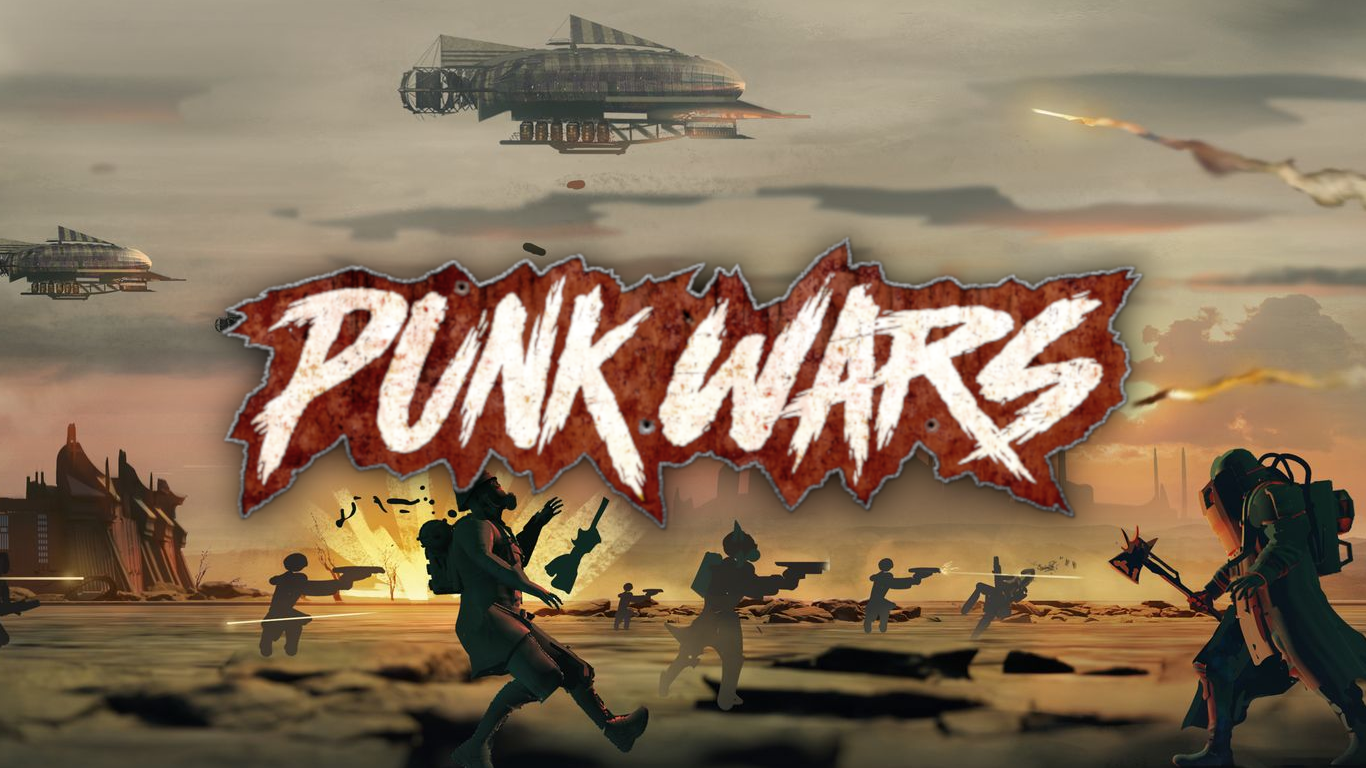Punk Wars’ take on the turn-based strategy genre is stylishly punchy, delivering relatively straight-forward gameplay with a shiny coat of paint and comically indulgent writing. The end result is a refreshing tincture of wasteland fun that’s unfortunately a little too shallow for the type of long-term obsession other games in the genre offer.
We Got The Punk
The gameplay of Punk Wars is pretty straight forward. You choose one of four factions, each representing a different type of punkiness: Steampunk, Dieselpunk, Atompunk, and Steelpunk. Each of these has their own unique resource in addition to the standard food, water, and living space resources. Each faction also has a unique technology tree in which they can unlock new units, buildings, and other upgrades. All of this looks great too. Zooming in on your units and buildings is fun and interesting and gets you invested in your faction.

The goal of the game, as you might have guessed, is to assert your dominance over your enemies in the wasteland. You’ll fight off surprisingly persistent raiders, armies of the other factions, and even the occasional good old fashioned internal rebellion. If you’re really lucky, you might even get all three at once. Unfortunately, it doesn’t seem like there’s much of an opportunity for diplomacy beyond simply abstaining from violence. But, this is the wasteland, and the typical kill or be killed attitude that wasteland setting games usually carry is certainly present here.
The four factions and raiders definitely bring a lot of character to the game, but the lack of variability in how you achieve victory, and the land in which you achieve it, makes gameplay feel stale after a short time.
War of the Words
One place where Punk Wars really shines is in its writing. As the leader of your punk faction, you’ll be presented with choices ranging from whether or not to investigate what seems to be a ghost found in the laboratories of the Atompunk Faction, or if you should provide steampunk themed shelter to a wandering tribe of what appear to be cultists.

These choices lead to a change in your resources or in how much of a resource you can gather each turn based on your decision. This adds some much needed flavor to the game that gives you a sense of ownership over your fledgling civilization. The writing leans heavily into the expected stereotypes of each faction in a self-aware yet subtle way. If you take the time to read through these sporadic events, you’ll find yourself laughing out loud.
Getting Into The Wasteland…
As with all strategy games, often the tutorial is what makes or breaks the experience for a player. Too little ‘tutorial-izing; can frustrate players when they’re not sure what to do and too much can bore them. Luckily, Punk Wars finds a happy medium, which is supported by the relatively standard gameplay that players of this genre are familiar with. After about 30 minutes, you’ll pretty much know what you need to do and will be used to the controls, which are intuitive and easy to use for the most part.

After the tutorial, the game takes a step back and lets you conquer the wasteland as you see fit. This is great, but you might also feel a bit directionless in some of the long term objectives. Normally, you might look to the campaign to remedy this by providing a thematically and narratively interesting path to a victory with characters, locations, and other points of interest for the player to attach to.
The campaign in Punk Wars, unfortunately, did little in this realm. It’s much too similar to a standard skirmish to provide the sort of hooks that a true campaign needs and in the end doesn’t provide a great reason to finish it.
Hold The Line…
Punk Wars does a lot of things right, and definitely is an interesting take on turn based strategy, but it mostly falls short on delivering anything novel other than its theme. If you’ve always fantasized about leading an armada of steampunk airships through the wasteland on a glorious conquest of science, then there’s definitely a lot to enjoy here on the surface, but your stay might start to turn stale before you’re ready to leave.






